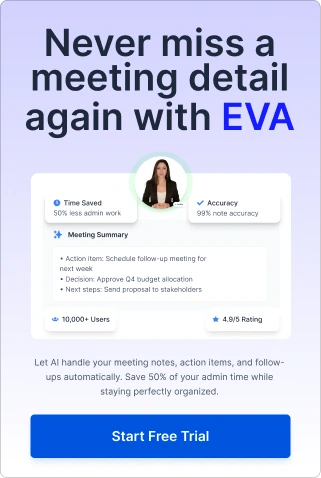Table of Contents
In today’s competitive Software as a Service (SaaS) industry, providing exceptional customer support isn’t just important—it’s essential. Maintaining high customer satisfaction depends on a critical factor: resolving support tickets quickly and effectively. How fast and efficiently a ticket is handled can be the difference between a loyal customer and one who walks away.
This is where Artificial Intelligence (AI) assistants come into play. AI has transformed the landscape for SaaS companies by automating and optimizing various parts of the support process. Let’s explore how AI assistants are changing the way support teams handle tickets and improving overall workflow efficiency.
1. AI-Powered Ticket Categorization and Prioritization
One of the most time-consuming challenges in support is sorting through incoming tickets. With AI, this task becomes streamlined. AI can automatically categorize tickets based on their content, helping prioritize them accordingly. For example, a ticket that mentions a system outage can be flagged as urgent, while a query about an account setting can be dealt with later.
By automating categorization, AI ensures that high-priority issues are immediately flagged for resolution, allowing human agents to focus their efforts on what matters most—without getting bogged down in ticket triage.
Example in Action:
A customer reports an error preventing access to their dashboard. The AI assistant reads the ticket and categorizes it as a high-priority issue, ensuring it’s routed to the technical team immediately.
Interesting Fact:
Did you know that AI-powered chatbots are capable of handling up to 80% of routine customer service inquiries without human intervention? This means that AI can significantly reduce the volume of support tickets that require human agents, allowing support teams to focus on more complex or high-priority issues. In fact, many SaaS companies report a 50% reduction in resolution time and a 30% increase in customer satisfaction after implementing AI in their support workflows!
AI isn’t just about automation—it’s about creating smarter, more efficient support systems that improve the overall customer experience.
2. Instant Automated Responses and Suggestions
AI assistants equipped with Natural Language Processing (NLP) can read the text in support tickets and generate immediate, automated responses. These responses are based on existing knowledge bases or frequently asked questions (FAQs). For more complex inquiries, AI can suggest pre-written solutions to agents, cutting down on time spent searching for answers.
Example in Action:
A customer asks how to integrate a third-party tool with the SaaS platform. The AI assistant provides step-by-step instructions right away. If the customer’s request requires troubleshooting, the AI escalates the issue to a support agent with context and suggestions for solutions based on past tickets.
3. AI Chatbots for Real-Time Customer Support
AI chatbots are a powerful tool for providing real-time support. These bots can immediately assist customers with simple tasks, guide them through troubleshooting steps, or gather critical information before escalating the issue to a human agent. This reduces wait times and ensures that customers receive timely help.
Example in Action:
A user is having trouble logging into their account. The AI chatbot verifies credentials, resolves common login issues like forgotten passwords, and even guides the user through multi-factor authentication. If the problem is more complex, the bot escalates the ticket to a human agent for further assistance.
4. Predictive Analytics for Better Resource Allocation
AI also shines in predictive analytics. By analyzing historical ticket data, AI can forecast periods of high ticket volume or identify potential problem areas. This allows SaaS companies to allocate resources efficiently, preparing for busy times, such as after a product update or feature release.
Example in Action:
Following the launch of a new feature, AI predicts an uptick in ticket volume regarding its usage. The AI alerts the support team, allowing them to staff up temporarily or automate responses for common questions related to the new feature.
5. Continuous Improvement of Knowledge Base
AI doesn’t just help with resolving tickets—it also enhances long-term support strategies. By identifying recurring issues, AI can pinpoint gaps in the knowledge base and suggest updates to FAQs or troubleshooting articles. This keeps both customers and agents armed with up-to-date and relevant information.
Example in Action:
A particular product configuration issue keeps cropping up in multiple tickets. AI recognizes the trend and suggests adding a new article to the knowledge base, explaining the configuration steps, which ultimately reduces future tickets on the same topic.
6. Post-Ticket Analysis and Feedback Collection
Once a ticket is resolved, AI can automatically collect feedback from customers through surveys and analyze their sentiment. This feedback loop helps support teams fine-tune their approach and continuously improve the customer experience.
Example in Action:
After resolving a technical issue, the AI assistant sends a satisfaction survey to the customer. The AI uses sentiment analysis to determine whether the customer is happy with the resolution, offering insights to support teams for further enhancement.
7. Seamless Integration with Other SaaS Tools
AI assistants don’t operate in isolation. They integrate seamlessly with other tools in the SaaS ecosystem. By connecting with CRM systems, project management platforms, and customer relationship tools, AI gives support agents immediate access to comprehensive customer data. This integration speeds up response times and ensures that agents have all the context they need to solve issues quickly.
Example in Action:
An agent is handling a ticket from a long-time customer. Thanks to AI integration, the agent can quickly access the customer’s full support history, usage data, and previous interactions, allowing them to resolve the issue more efficiently and provide a more personalized experience.
The Future of AI in SaaS Support
AI’s role in SaaS support is just beginning. As technology evolves, we can expect even more sophisticated solutions, such as deeper personalization, more advanced sentiment analysis, and even smarter machine learning algorithms. These advancements will continue to enhance the speed and quality of ticket resolutions, further improving customer satisfaction.
By embracing AI, SaaS companies can deliver faster, more effective support—ensuring customers get the help they need, when they need it. This not only improves the customer experience but also enables support teams to work more efficiently, driving higher productivity and greater customer retention.
In conclusion, AI’s role in resolving support tickets faster is transformative. As SaaS companies integrate these tools into their workflows, they stand to gain a significant competitive edge, making ticket resolution smarter, faster, and more seamless than ever before.
FAQ
AI assistants can automate various stages of the support process, including ticket categorization, response generation, and prioritization. By analyzing ticket content, AI ensures that urgent issues are addressed quickly, while routine queries can be handled through automated responses or self-service options, reducing overall resolution time.
AI chatbots offer real-time assistance to customers, providing immediate responses to common queries, troubleshooting issues, and guiding users through troubleshooting steps. They help reduce customer wait times and free up human agents for more complex tasks, leading to faster resolution and improved customer satisfaction.
Yes, Paradiso AI enhances SaaS onboarding by guiding new users through the product with personalized, step-by-step support. It can offer recommendations, highlight key features, and track user progress, ensuring a smooth and efficient onboarding process that drives user engagement and reduces churn.
Paradiso AI gathers valuable insights such as user behavior, sentiment analysis, conversion drop-off points, and recurring support queries. These data points help SaaS companies identify friction points, optimize their website, and prioritize product improvements based on real user feedback.
Yes, Paradiso AI is designed for seamless integration with various SaaS platforms. The setup process is straightforward, and you can choose between JavaScript or API integration, depending on your website's infrastructure. Once integrated, the AI assistant is ready to enhance user engagement and provide valuable insights.
By automating personalized interactions, Paradiso AI helps guide visitors through their decision-making process. It can recommend the right product features, offer promotions, and address concerns in real-time, reducing friction and increasing the likelihood of conversions and sign-ups.
 Free
Free










